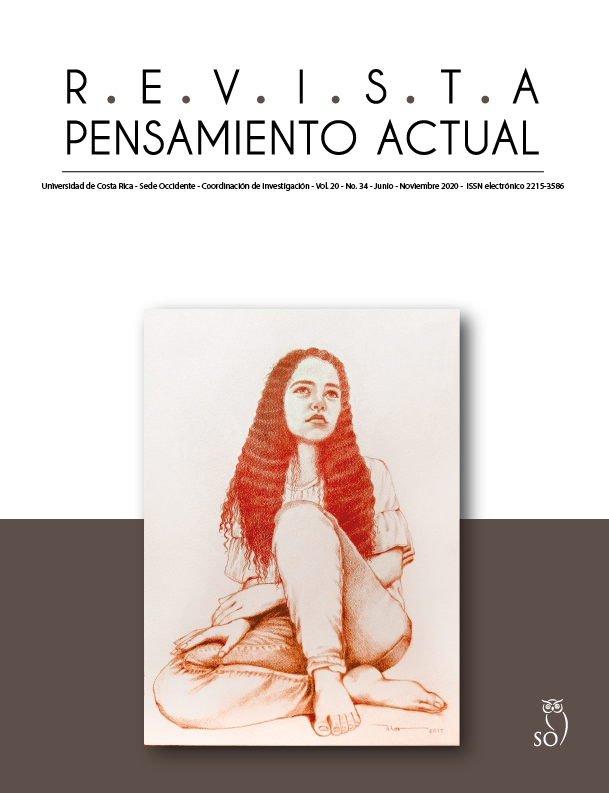Abstract
Apollonius Rhodius was one of the main figures of the Greek poetry in the Hellenistic period. In his only remaining work, Argonautica, this author established a significant dialogue with the previous literary tradition, especially with the Homeric epic. Due to the fact that, for many years, the study of Hellenistic literature has been neglected, and that, in addition, there has never been a comprehensive account of the relationship between Apollonius’ work and its epic antecedents, the purpose of this paper was to analyze intertextuality (specifically hipertextuality) between Argonautica and Homer’s poems. The examined aspects led to the conclusion that the Hellenistic poet conjugated within his work elements of tradition and innovation, and established a creative intertextual dialogue with the ancient oral poet, since at the same time that he assimilated masterfully the main methods and motives of traditional epic, he also incorporated the aesthetic devices of his own time.
Keywords: Argonautica; Homeric epic; intertextuality; Hellenistic poetry.
References
¿Cómo citar este artículo?
Moreno, A. (2020). El diálogo intertextual entre Las Argonáuticas de Apolonio de Rodas y las epopeyas homéricas. Pensamiento Actual, 20(34), 49-60. https://doi.org/10.15517/pa.v20i34.41916
Apolonio de Rodas (2003). Las Argonáuticas (edición y traducción de Máximo Brioso Sánchez). Madrid: Ediciones Cátedra.
Bochetti, C. (2006). El espejo de las Musas. El arte de la descripción en la Ilíada y Odisea. Santiago de Chile: Centro de Estudios Griegos, Bizantinos y Neohelénicos “Fotios Malleros”, Universidad de Chile.
Broich, U. (2004). “Formas de marcación de la intertextualidad”, en Navarro, Desiderio (comp.). Intertextualität 1. La teoría de la intertextualidad en Alemania. La Habana: UNEAC, Casa de las Américas, pp. 85-105.
Clauss, J. (1993). The Best of the Argonauts: The Redefinition of the Epic Hero in Book One of Apollonius’ Argonautica. Berkeley: University of California Press.
Dällenbach, L. (1997). “Intertexto y autotexto”, en Navarro, Desiderio (comp.). Intertextualité. Francia en el origen de un término y el desarrollo de un concepto. La Habana: UNEAC, Casa de las Américas, pp. 87-103.
Easterling, P. E. y Knox, B. M. W. (Eds.) (1990). Historia de la literatura clásica I. Literatura Griega (Cambridge University). Madrid: Editorial Gredos. Fernández Contreras, M. (2002). “Los sueños en Homero y Apolonio de Rodas”. Habis, no. 33, pp. 9-37.
Genette, G. (1997). “La literatura a la segunda potencia”, en Navarro, Desiderio (compilador y traductor). Intertextualité. Francia en el origen de un término y el desarrollo de un concepto. La Habana: Colección Criterios, UNEAC, Casa de las Américas, pp. 53-62.
Gil Fernández, L. (2007). “La épica helenística”, en Lecciones helenísticas (compilación de Silvia Aquino). México: UNAM, pp. 233-264.
Homero (1979). Ilíada (traducción de Luis Segalá y Estalella). La Habana: Editorial Pueblo y Educación.
(1970). Odisea (traducción de Luis Segalá y Estalella). La Habana: Instituto Cubano del Libro.
Hughes Fowler, B. (1989). The Hellenistic Aesthetic. Wisconsin: The University of Wisconsin Press.
Körte, A. y Händel, P. (1973). La poesía helenística. Barcelona: Editorial
Labor. Kristeva, J. (1997). “Bajtín, la palabra, el diálogo y la novela”, en Navarro, Desiderio (comp.). Intertextualité. Francia en el origen de un término y el desarrollo de un concepto. La Habana: UNEAC, Casa de las Américas, pp. 1-24.
Mori, A. (2001). “Personal favor and public influence: Arete, Arsinöe II and the Argonautica”. Oral Tradition, 16(1), pp. 85-106.
Pfister, M. (2004). “Concepciones de la intertextualidad”, en Navarro, Desiderio (comp.). Intertextualität 1. La teoría de la intertextualidad en Alemania. La Habana: Casa de las Américas, UNEAC, pp. 25-49.
Rodríguez Adrados, F., Fernández-Galiano, M., Gil, L. y Lasso de la Vega, J. (1963). Introducción a Homero. Madrid: Ediciones Guadarrama.
Seaton, R. C. (1891). “On the imitation of Homer by Apollonius Rhodius”. Journal of Philology, no. 19, pp. 1-13.

